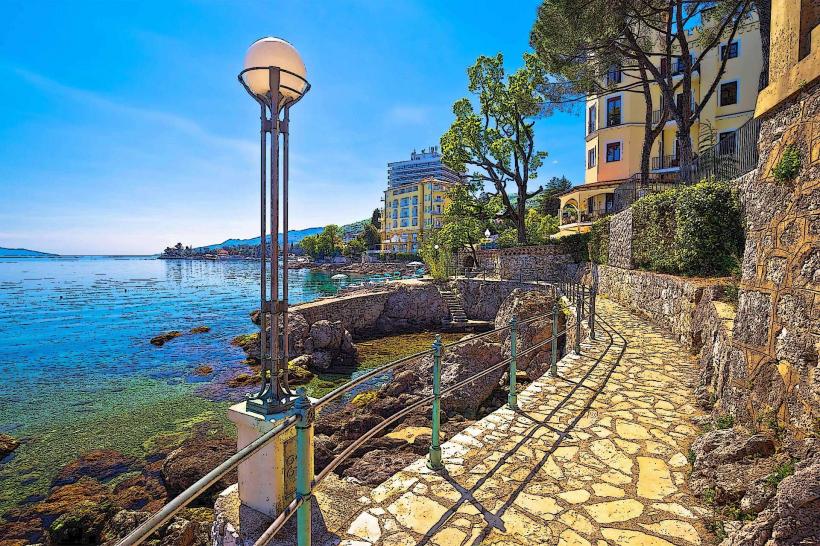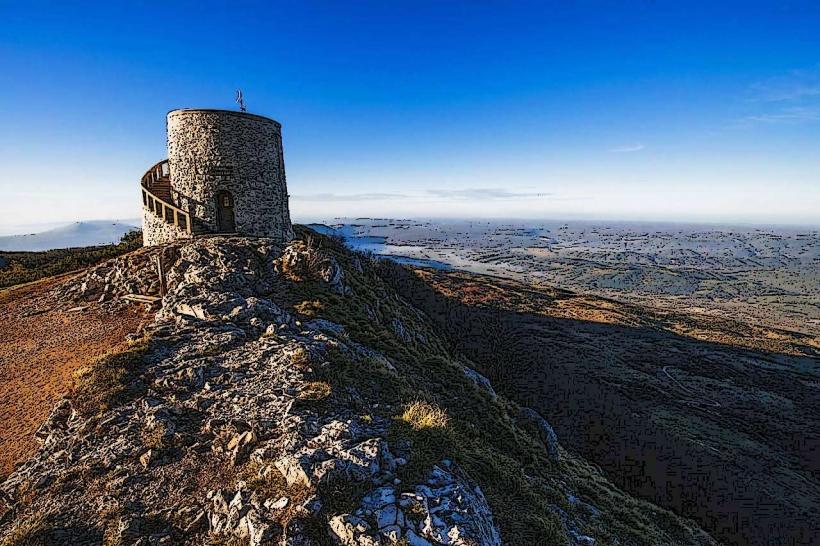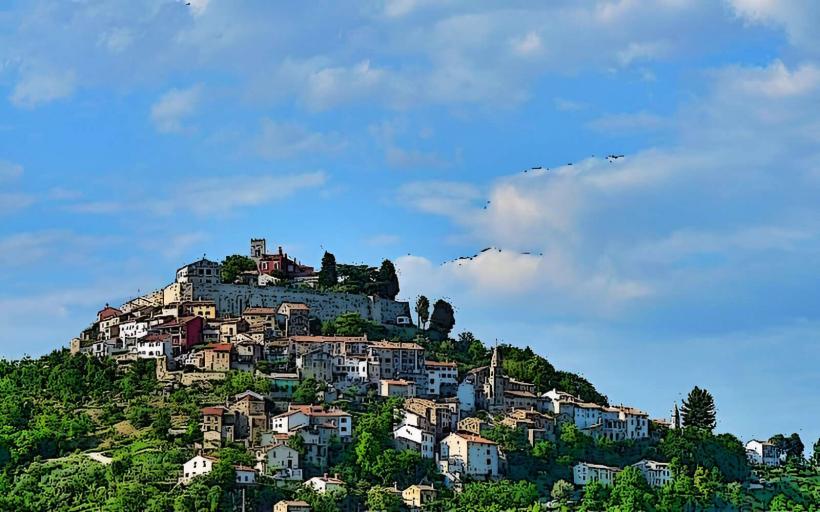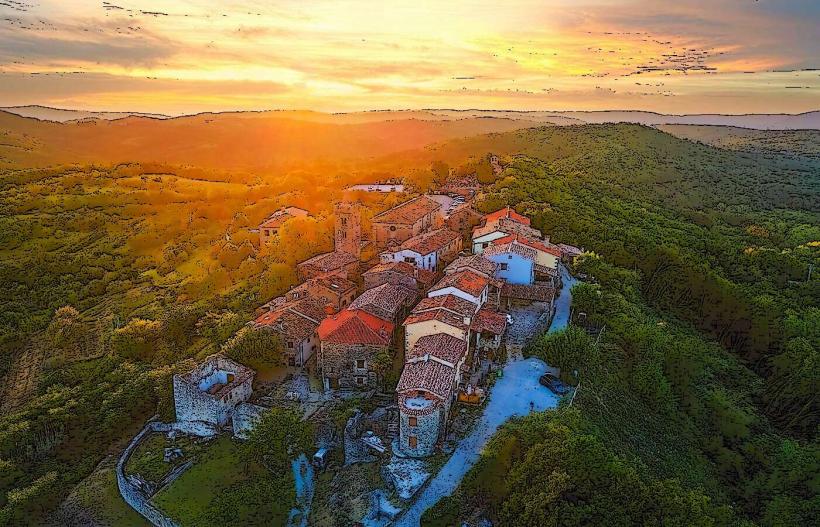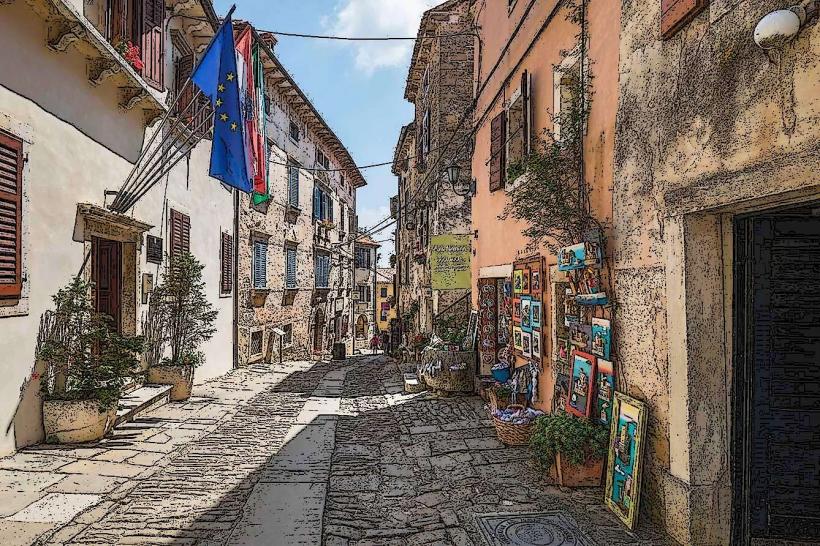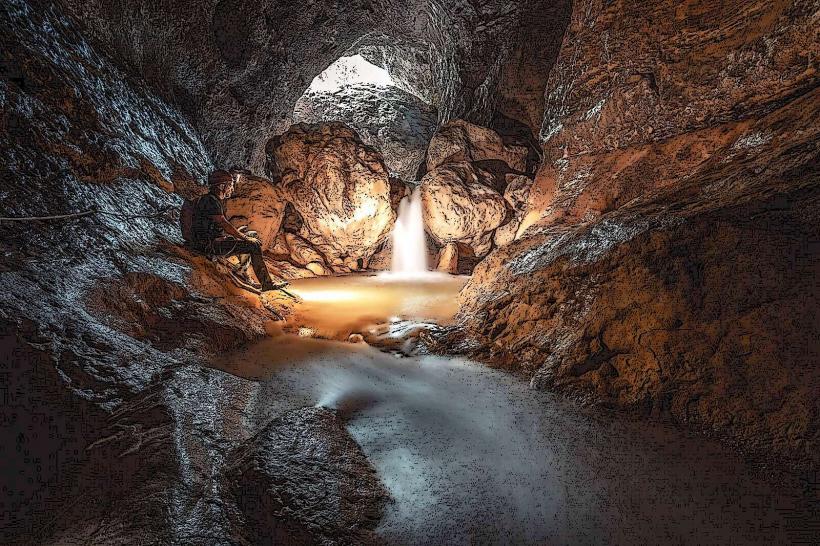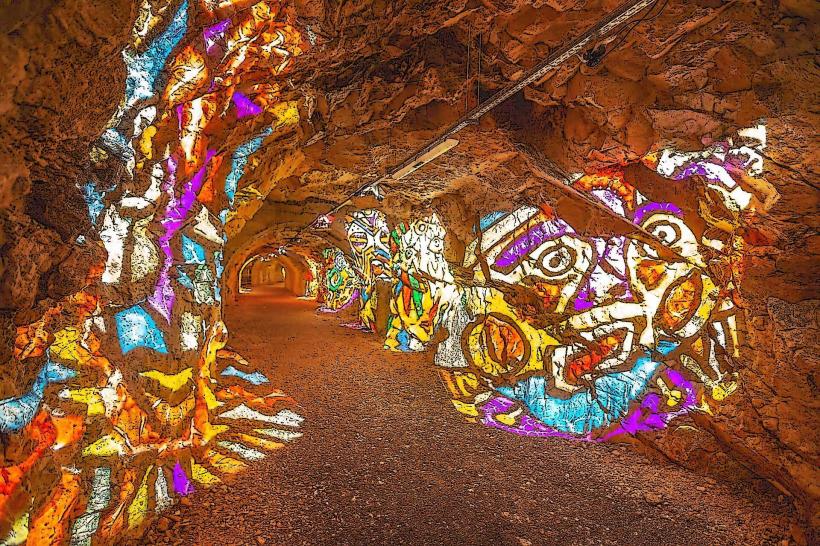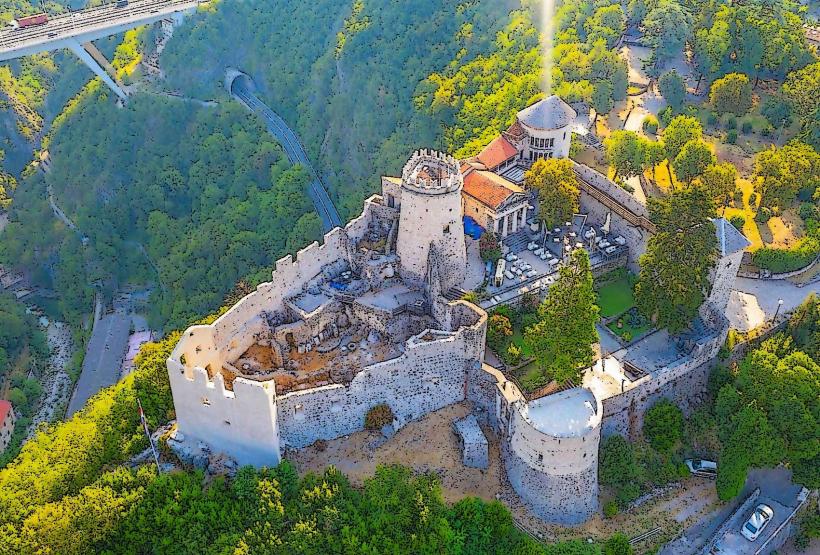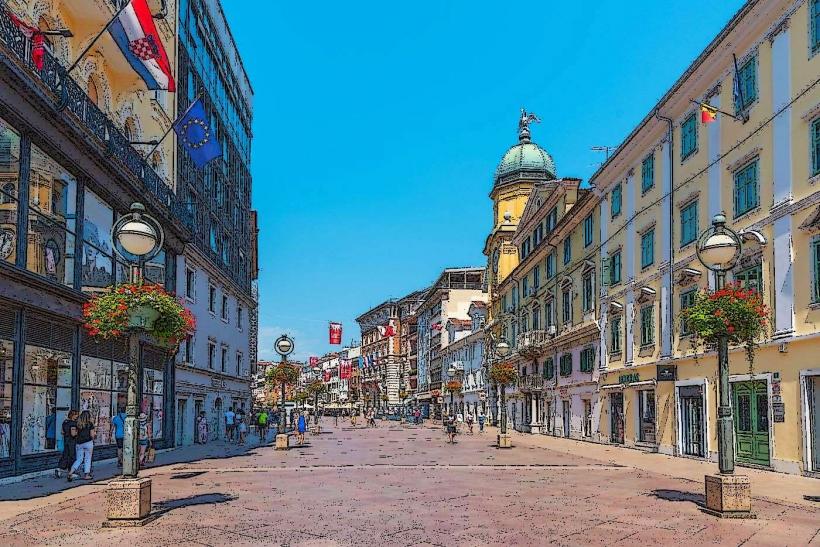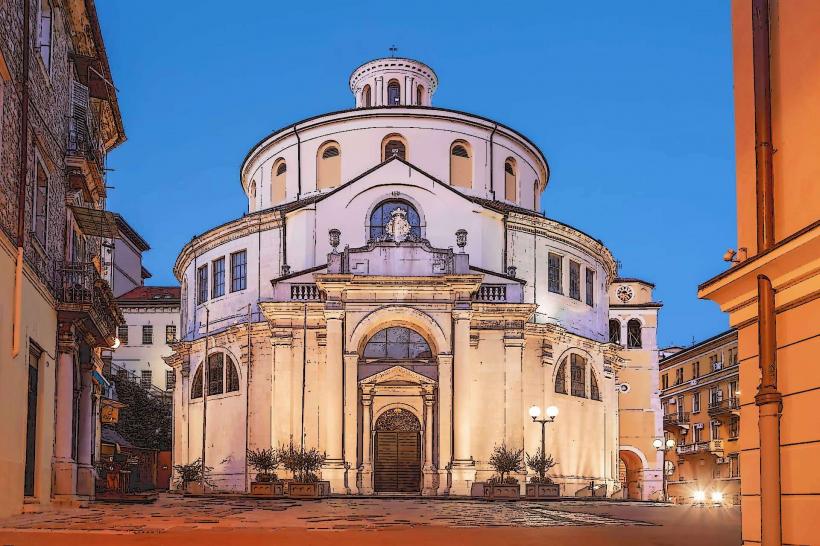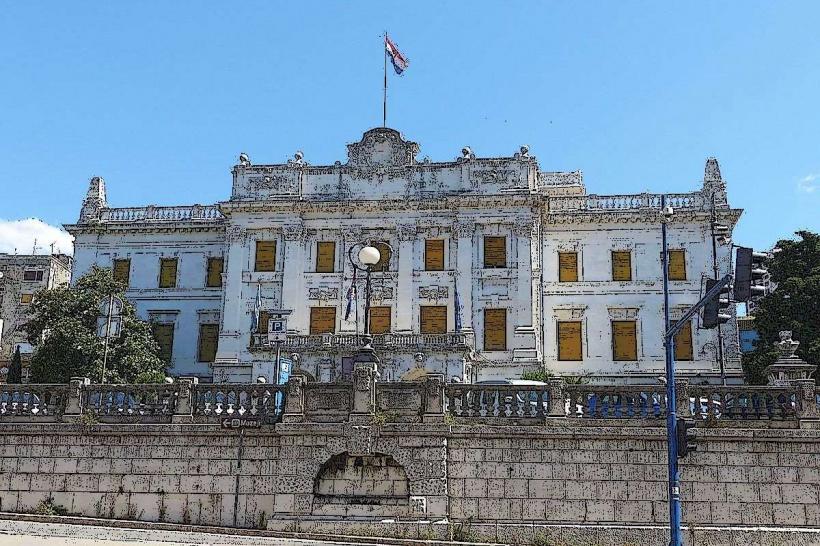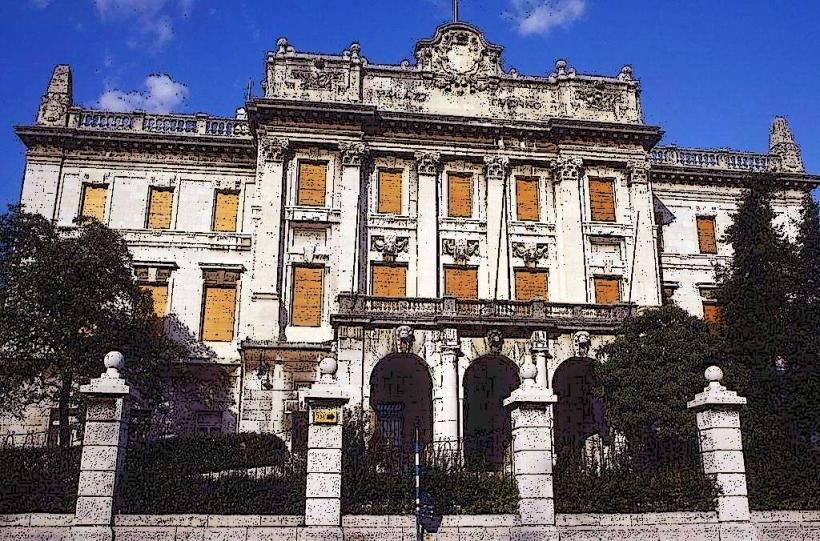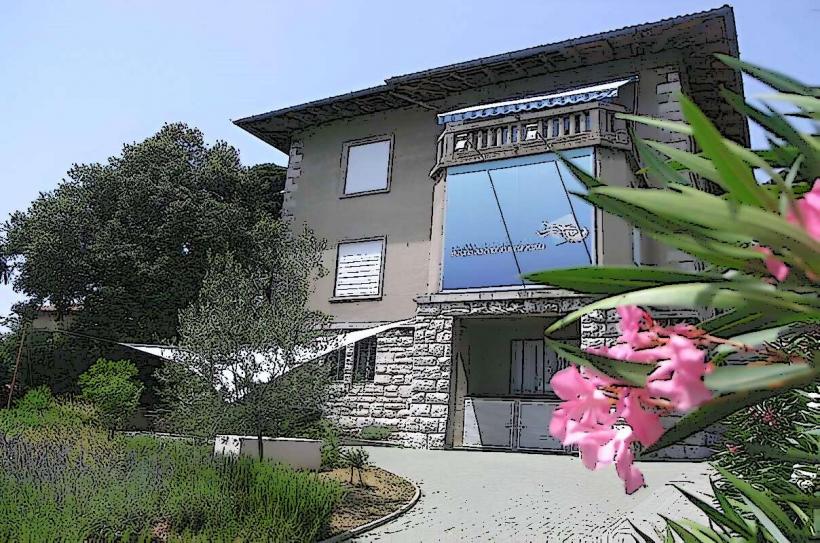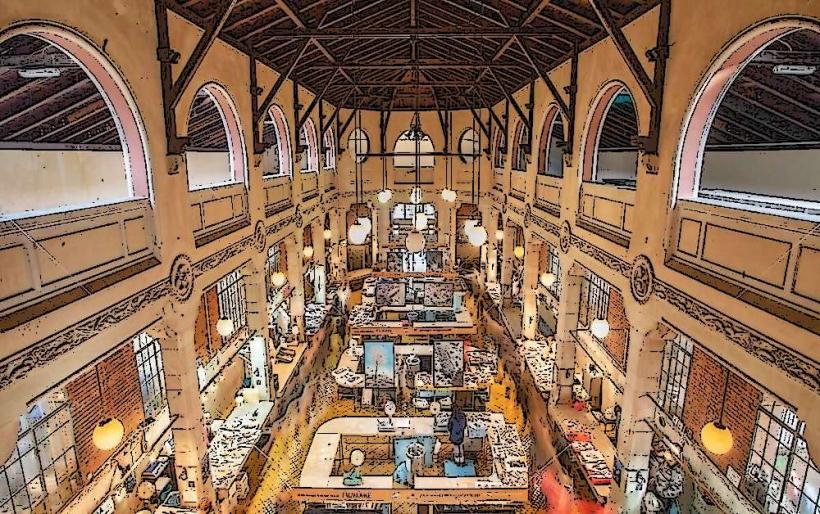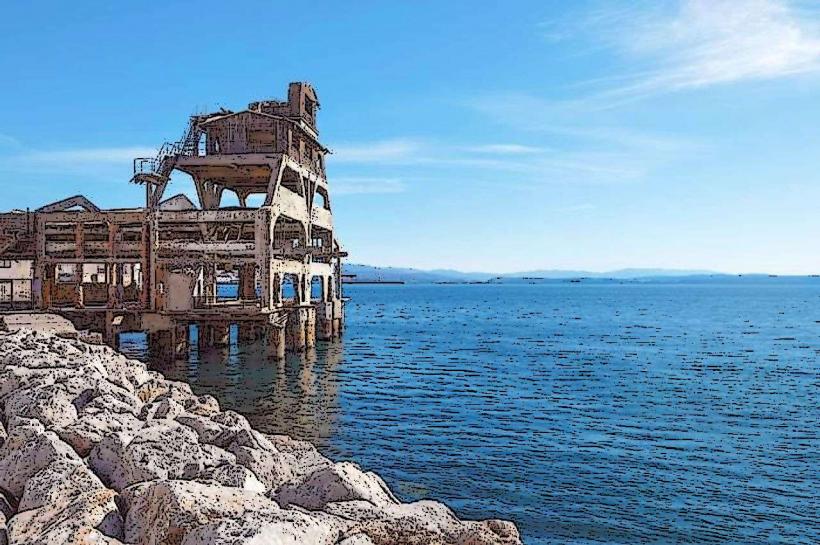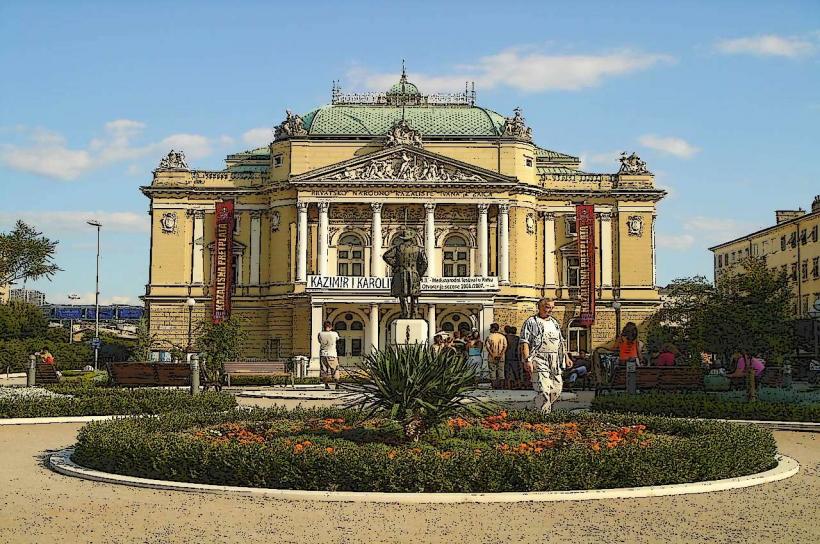Information
Landmark: Lovran Old TownCity: Rijeka
Country: Croatia
Continent: Europe
Lovran Old Town, Rijeka, Croatia, Europe
Lovran Old Town is a medieval stone settlement situated on the Opatija Riviera, approximately 15 kilometers west of Rijeka. It is one of the oldest coastal inhabited sites in the Kvarner Gulf, built on a small peninsula where the slopes of Mount Učka meet the Adriatic Sea.
Visual Characteristics
The town center is characterized by a compact, radial urban plan with narrow stone alleys (kalete) and small squares. The architecture features Romanesque, Gothic, and Baroque elements, with buildings constructed from heavy karst limestone. The most prominent structural feature is the medieval defensive tower adjacent to the Parish Church of St. George, which features a distinctive yellow façade and a red-tiled bell tower.
Location & Access Logistics
Lovran is located at the southern terminus of the 12-kilometer Lungomare promenade. Access from Rijeka is via the D66 coastal road or the "Autotrolej" bus line 32, with a travel time of approximately 30–40 minutes. There is no rail access directly to the town; the nearest station is in Matulji. Public parking is available in several small lots near the harbor and the main bus station at the entrance to the historic core.
Historical & Ecological Origin
The town is named after the laurel (Laurus nobilis) which grows abundantly in the surrounding microclimate. Mentioned as early as the 7th century, Lovran became a major shipbuilding and maritime center in the Middle Ages. The old town was originally a walled fortress, with the "Stubica" gate remaining as the primary eastern entrance from the sea.
Key Highlights & Activities
The Church of St. George contains 15th-century Gothic frescoes and Glagolitic inscriptions. Visitors can walk the historical perimeter starting from the Town Tower, which now houses a gallery. The coastal path offers direct access to the "Peharovo" pebble beach and several concrete sunbathing plateaus located on the town's southern edge.
Infrastructure & Amenities
The historic core contains a pharmacy, small grocery stores, and several traditional taverns (konobas). Public restrooms are located near the harbor. 5G cellular coverage is consistent throughout the old town and the waterfront. While the narrow alleys provide significant natural shade, the waterfront areas are exposed to the sun.
Best Time to Visit
Photography is optimal in the late afternoon when the sun highlights the colorful façades of the main square. October is a significant month for visiting due to the "Marunada" festival, which celebrates the local variety of sweet chestnuts grown on the slopes of Mount Učka. Spring (April–May) is ideal for observing the blooming of the laurel trees.
Facts & Legends
According to local history, Lovran was the favorite summer residence of many high-ranking Austro-Hungarian officials who preferred its quieter atmosphere over the neighboring town of Opatija. A local oddity is the "City Tower," which was shortened during the 17th century to prevent it from becoming a target for naval artillery.
Nearby Landmarks
Lungomare Promenade – 0.1km East
Ika Fishing Village – 1.8km North
Medveja Beach – 2.5km South
Učka Nature Park (Vojak Peak) – 4.5km West (Direct vertical distance)
Villa Frappart – 0.4km North

